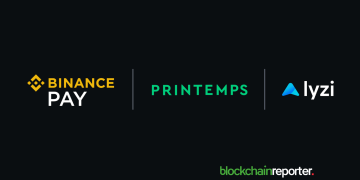In recent years, the blockchain landscape has seen an explosion of innovative projects that aim to revolutionise various industries. Among the vast array of options, a select few have garnered attention due to their unique approaches, technological capabilities, and growing communities. Here, we’ll delve into five blockchain projects you should keep an eye on: Qubetics, Arbitrum, Algorand, Solana, and Tron. Each of these projects brings something unique to the table, from enhancing scalability and transaction speeds to fostering decentralised finance (DeFi) ecosystems. Let’s dive in and explore what makes each of these projects stand out.
Qubetics: The Next-Gen Blockchain Ecosystem Transforming Decentralized Networks
Qubetics stands out in the blockchain world thanks to its advanced Delegated Proof of Stake (DPoS) consensus mechanism, which is an evolved version of the traditional Proof of Stake model optimised for efficiency, decentralisation, and community involvement. In the Qubetics network, users select delegates (validators) through a democratic voting system, giving them the power to validate transactions and generate blocks. Unlike energy-intensive Proof of Work systems, DPoS allows for faster transactions with a significantly reduced environmental footprint. Validators in the network earn rewards, which they share with voters, incentivising active community participation. This DPoS system not only enhances security but minimises network disruptions by temporarily excluding validators who fail to produce blocks until they signal readiness to rejoin.
Qubetics is making waves with its ongoing presale, which has already raised over $1.5 million. This price will increase by 10% in each subsequent stage, offering early investors the chance to maximise returns, with some analysts predicting the token could reach as high as $0.25 by the end of the presale. If $TICS reaches $15 after launch the ROI could soar to 93,800%.
Arbitrum: Boosting Ethereum Scalability with Layer 2 Solutions
Arbitrum has gained significant traction as a Layer 2 scaling solution for Ethereum, aiming to tackle the persistent issue of network congestion and high gas fees. Built by Offchain Labs, Arbitrum enhances Ethereum’s transaction processing speed while reducing costs, making DeFi more accessible for users and developers alike. By moving transactions off-chain and only occasionally settling them on the Ethereum blockchain, Arbitrum optimises efficiency without compromising on security. As Ethereum continues to be a leading platform for decentralised applications, Arbitrum’s role in scaling the network positions it as a pivotal player in the blockchain space.
Algorand: The Green Blockchain for Sustainable Development
Algorand stands out in the crypto ecosystem for its commitment to sustainability and environmental consciousness. Founded by MIT professor Silvio Micali, this blockchain employs a Pure Proof-of-Stake (PPoS) consensus mechanism, which drastically reduces energy consumption. Algorand’s eco-friendly approach has attracted a range of companies and governments interested in sustainable blockchain solutions, as well as developers, focused on building decentralised applications. With its fast transaction speeds, low fees, and dedication to reducing its carbon footprint, Algorand is establishing itself as the go-to blockchain for green initiatives and environmentally conscious applications.
Solana: Delivering High-Speed Blockchain Performance
Solana has quickly become known for its high-speed, low-cost transactions, making it a favourite among developers and crypto enthusiasts. Using a unique Proof-of-History (PoH) consensus mechanism, Solana can process thousands of transactions per second, a capability that outpaces many of its competitors. This speed and efficiency make Solana a prime choice for DeFi applications, NFTs, and other high-demand blockchain use cases. With a rapidly growing ecosystem of decentralised applications and projects, Solana is setting new standards for blockchain performance and scalability, making it a key player in the industry.
Tron: Pushing for Decentralized Content and Entertainment
Tron was established with a clear goal: to decentralise content distribution and entertainment on the blockchain. By enabling content creators to interact directly with their audiences, Tron removes the need for intermediaries and allows for fairer revenue distribution. Its blockchain supports decentralised applications and smart contracts, catering to a growing audience of developers and content creators. Tron’s focus on creating a decentralised entertainment ecosystem has allowed it to build a strong following and a solid platform for media, gaming, and more, showcasing the versatility of blockchain technology beyond finance.
Conclusion
The blockchain space is rapidly evolving, with projects like Qubetics, Arbitrum, Algorand, Solana, and Tron each contributing unique value to the ecosystem. While Qubetics presents a promising opportunity in its presale phase, Arbitrum, Algorand, Solana, and Tron have carved out specialised niches that continue to attract users and developers. Together, these projects highlight the versatility of blockchain technology, from scaling solutions and sustainable protocols to high-speed networks and decentralised entertainment. As we move forward, keeping an eye on these projects can offer insights into the future trajectory of blockchain and its potential to shape our digital world.
Qubetics: https://qubetics.com
Telegram: https://t.me/qubetics
Twitter: https://x.com/qubetics























